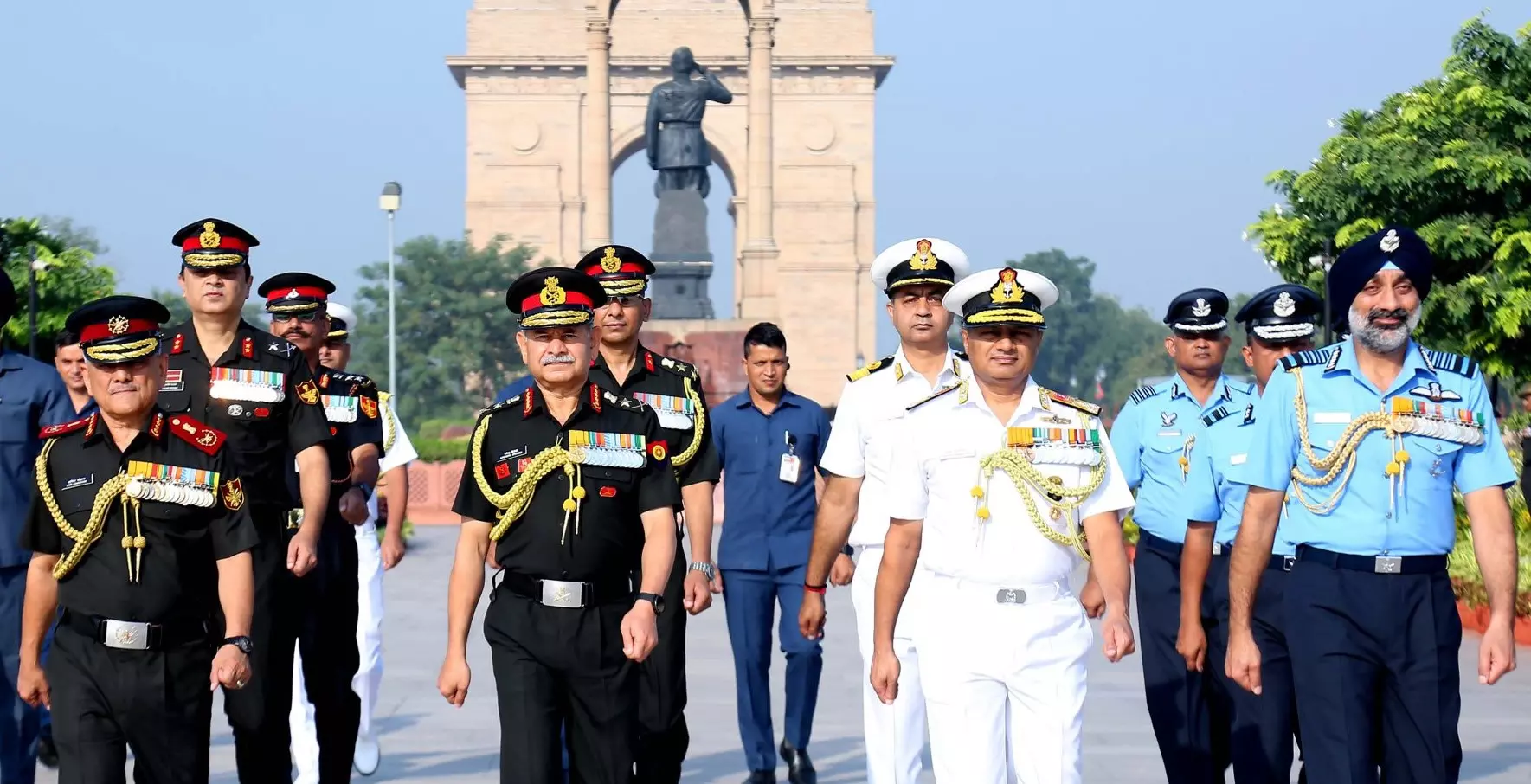
Centre notifies rules for unified command of tri-services amid India-Pak tensions
The Act provides the Inter-Services Organisations chiefs clear guidelines for maintaining discipline, managing operations, and ensuring coordination

The Union government has formally notified new rules under the Inter-Services Organisations (Command, Control & Discipline) Act 2023, aimed at ensuring unified command across the three defence services – the Army, Navy, and Air Force.
"This significant step aims to bolster effective command, control, and efficient functioning of Inter-Services Organisations (ISOs), thereby strengthening jointness among the Armed Forces," the Ministry of Defence (MoD) said.
The rules came into effect on May 27, it added.
Also Read: What Op Sindoor marked in warfare: More power to air force, zero boots on ground
Bill passed in 2023
As per the gazette notification, the Bill was passed by both Houses of Parliament during the Monsoon Session of 2023. President Droupadi Murmu gave her assent to the Bill on August 15, 2023, following which, the Act came into force with effect from May 10, 2024.
With the rules now notified, the legislation becomes fully operational, enabling ISOs to function more cohesively and with greater authority.
The Act is designed to enable the Commanders-in-Chief and senior officers of ISOs to work effectively, as it provides clear guidelines for maintaining discipline, managing operations, and ensuring coordination.
Also Read: Army Chief gives commanders full powers to respond to Pak truce breach
Strategic move
According to the notification, Commanders-in-Chief of Joint Services Commands, Officers-in-Command of inter-services establishments, and Commanding Officers of inter-services units shall exercise all disciplinary and administrative powers over all military personnel under their jurisdiction, regardless of whether they belong to the Army, Navy, or Air Force.
The rules will be applicable to all personnel subject to the Army Act, 1950, the Navy Act, 1957, and the Air Force Act, 1955, when serving in any of the ISOs.
The implementation of the unified command structure is seen as a timely strategic move aimed at enhancing the interoperability and operational readiness of Indian forces.
In the face of growing regional threats and complex joint operations, the Centre’s decision marks a significant shift towards integrated military leadership.
Also Read: Op Sindoor: Army denies deploying air defence guns in Golden Temple premises
Tense geopolitical backdrop
The enforcement of these rules comes amidst heightened tensions between India and Pakistan following the April 22 terror attack in Pahalgam, Jammu and Kashmir, which claimed 26 civilian lives.
In retaliation, India launched Operation Sindoor on May 7, targeting nine terror infrastructure sites across Pakistan and Pakistan-occupied Kashmir. These terror camps were linked to outfits such as Jaish-e-Mohammed, Lashkar-e-Taiba. The centre had said that in this operation, more than 100 terrorists were killed.
Following the operation, Pakistan attempted to launch a retaliatory action against India, with cross-border shelling, drones and unarmed aerial vehicles over Jammu and Kashmir, and border regions. However, these attempts were thwarted by the Indian forces and air defence systems.
After four days of intense cross-border fighting, India and Pakistan on May 10 reached a ceasefire understanding, agreeing to stop all military actions against each other on land, sea, and air.

